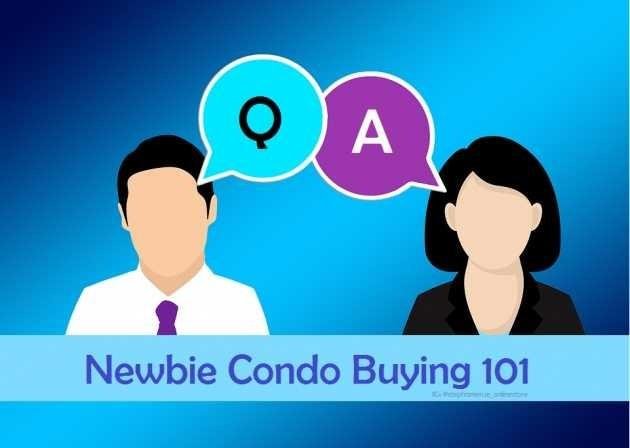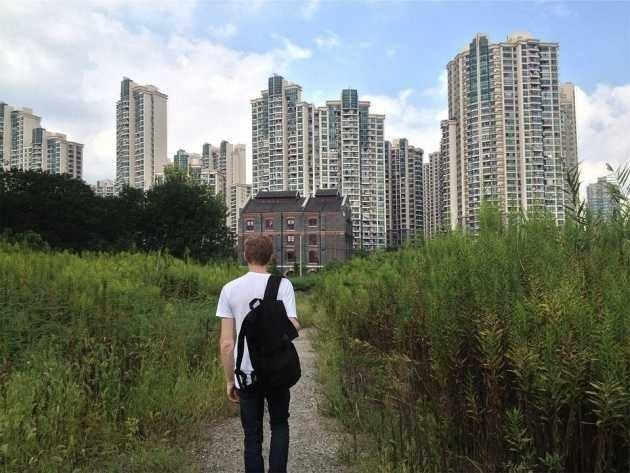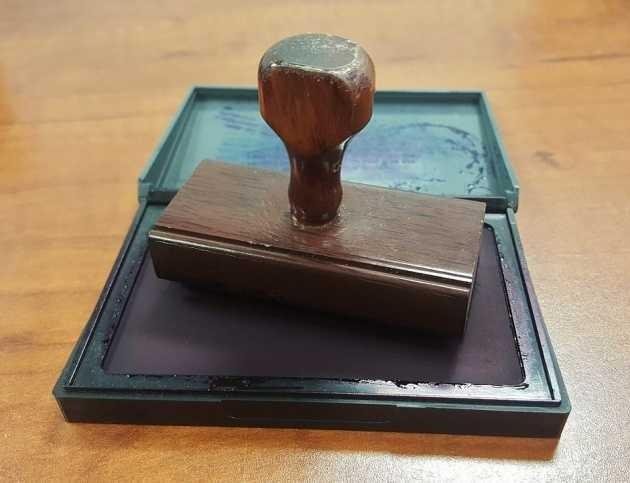Newbie Condo Buying 101: All About Buying Condominium Units in the Philippines (1 of 2)
Looking to buy a condominium anywhere in the Philippines? Read through some of the questions below and find some answers to common newbie buyer questions.
Here's an overview of what's in this article:
Now that I got that covered, let's start!
A condominium (or condo for short) is a vertical structure or building which is composed of several condo units per floor. The building can be a low, mid or high rise depending on the number of floors. It also holds various common areas and amenities owned and shared by residents like the elevators, lobby, swimming pool, gym, etc.
A unit can stand as an individually owned home within a floor together with other units beside each other. It can be a studio, a garden unit, a one, two or three bedroom unit or a penthouse unit. Parking slots can also be purchased and are either in several levels of the basement or a parking podium.
Price can range from the most affordable or low priced to the really upscale and then most luxurious condominiums. There are plenty to choose from so you have to narrow down your choices and check your finances or else you will be overwhelmed.
As an example, here's a short video I took last year. It shows some of the really affordable condominium properties in Boni/Pioneer, Mandaluyong City, NCR, Philippines.
These are already sold out but there's a very new pre-selling affordable condo soon to rise there and it's all studio units. (I have the project details of course.) 😁
The above is an example of a purely residential condominium complex. Other such properties can also have commercial and residential units combined in one building. Some developers have properties with separate buildings each for commercial units and residential units. Others have a combination of hotel and residential units either in just one building or separated into two or more.
An example of a combination of hotel and residential units in one condominium would be the Chimes Greenhills by Robinsons Land Corporation (RLC). It is still affordable but it is an affluence inspired condo. It has five floors dedicated as hotel rooms while the upper floors are residential units.
Another mixed-use condominium development example would be The Residences at The Westin Manila Sonata Place, a wellness-centered and luxury property. It's the only Westin-branded residences in Southeast Asia and as such has two main structures within the property. See below.
The shorter building is The Westin Manila Sonata Place hotel at 30 stories high. It is a Westin hotel through and through with amenities from the ground level to the fourth floor. All the rooms above it are for guests to check into. Across it would be The Residences which will be 50 stories high. Its first to fourth floor would be the entire exclusive amenities area while the 5th floor going up are purely residential units.
Now that you know what a condominium is, how will you know which one to buy?
Think about everything then decide by knowing most of the answers to the following:
Consider things like if pets are allowed or if it's possible to use it as a commercial or rental unit in the future, etc. Commercialization of residential units is usually not allowed but some can be turned into leased units depending on the property and developer. A prime example of a residential condominium with units you can convert to a short term rental property would be The Radiance Manila Bay along Roxas Boulevard.
With regards to pets, not all condominiums allow animals in the building. Most condos do not but The Residences at The Westin Manila Sonata Place in the Ortigas Business District will allow small pets like chihuahua or cute little poodles. Even cats or small birds can live with you too. All other animals may need to be declared and approved first before you bring it in upon turnover.
The Westin Manila hotel will also offer pet services to guests among other things, thus the unit residents can avail of it as well!
The answer is a big resounding YES! Even if you are an Overseas Filipino Worker (OFW) or just prefer to live outside the Philippines, you can still buy a property here. There's no problem with it. Just have someone represent you legally in the country if you cannot go back and forth from abroad.
Get an Apostille / Consularized (consulate notarized) Special Power of Attorney (SPA) and the person named in it can also be the one to sign documents on your behalf here in the PH. Otherwise provide a locally notarized SPA before you leave the country temporarily or permanently.
In case you are a natural-born Filipino who have changed citizenship and are living abroad, you can still purchase a condo unit in the PH. As per Batas Pambansa 185 (BP 185) and Republic Act No. 9225 (R.A. 9225) your children can also purchase a condo in their name because you are a Filipino by birth. Therefore, your offspring retain Filipino citizenship even if they were born outside the country. All or most of the immediate family members can also file for Dual Citizenship at the nearest Philippine Embassy/Consulate.
Edit Dec 2020: If you are unable or prefer not to have a local SPA then you can print out the purchase documents your agent/broker will email you and then have it apostilled or consularized. It depends which country you are located in. (Read my blog on an apostilled document I received if you haven't heard of it yet.) Once done you will have to send it to your agent via air mail to finalize your purchase.
Yes of course! There's no one stopping you but you. Haha. If you are not a Filipino citizen, just make sure the condominium you will purchase from can still accommodate you. Foreign ownership per condominium is at a 40% maximum. Meaning only 40% of the total condominium units of any condo can be sold to foreigners, 60% will belong to Filipinos.
Section 5 of the Republic Act 4726 (R.A. 4726) or The Condominium Act states the following:
Otherwise if the condominium property already reached the 40% foreign ownership limit then there are only two other ways to buy a unit. You would either have to be a foreigner married to a Filipino citizen or you should have a Special Resident Retiree’s Visa (SRRV) and be a former natural born Filipino.
For bank loans/mortgage, a foreign national must have been living in the country for three years or have a business here. You can also check with international banks to know more about the loan requirements.
If you need more info and some advanced details, you can also watch this video published in 2014. It is mostly in English so you can still understand what they are talking about.
Developers may have a bit of difference in requirements. As a foreign individual, you will surely need to have a passport, government IDs plus a one-time Philippine Tax Identification Number (TIN) from the Bureau of Internal Revenue (BIR). For Filipinos, you will be required to present 2 valid government IDs as well as proof of billing and proof of TIN among other things.
For a complete list of requirements, inquire from your agent or broker. We'd be happy to provide you details on everything that is needed.
A broker and an agent are usually two different people in the Philippines. Only a real estate broker is licensed to sell properties while an agent has a sub-license to sell. Meaning a real estate agent (like me) must be under a licensed broker and/or work in-house with a developer in order to be legally able to sell any property in the country. They both also have to be registered with government agencies like PRC and HLURB.
Until only several years ago, Filipino agents, brokers or anyone without a license could still just sell properties left and right. Imagine what kind of and how many shady dealings were happening back then. Lol. This is why the Philippine real estate industry is getting better and better because of the improvement in regulations happening over the past few years.
Both a broker and an agent can help you in acquiring a condominium unit. Either of the two is fine. Some brokers will have an agent assist you while others will help you out themselves. On top of that, a broker can have several agents working for and together with him. He/she can hire agents to sell properties he/she is handling and are accredited to sell.
Legally, an agent cannot sell a property to anyone if they are not under a broker or developer. Bottom line, agents are usually the ones who will assist you (buyers) with most of the things you need in order to acquire the condo unit.
FYI, there are two kinds of real estate agents: a general brokerage agent and an in-house agent. A general brokerage agent is someone who can sell you any property their broker handles and are accredited to sell. Or they can sell any other propery to you, not handled by the same broker, as long as they have their own broker's consent. On the other hand, an in-house real estate sales agent (like me) would be someone who is hired and works directly for a developer like RLC. Most of the time this kind of agent is not allowed to sell any other property to anyone unless it is by the developer they work for.
As for lawyers, correct me if I'm wrong but they are not allowed to sell any property to anyone unless they are also licensed real estate brokers/agents or they have a notarized authority to sell letter and an SPA. You can hire lawyers to buy in your behalf subject to certain conditions but they cannot sell properties to you without the aforementioned conditions. There are a few more possibilities but that's a topic for another day. But of course they can handle the documentation afterwards once the condo and all the required papers have been turned over to you by the developer or the broker.
Hiring a lawyer is best if there are complications to buying (and even selling) a property, not when purchasing a freshly launched pre-selling or brand new RFO condominium directly from the developer. For example the property is foreclosed, there's a legal case against the developer, or it already has a title and is/was mortgaged but the owner is dead then those are matters they can help you with. You can also choose to work with a reputable brokerage company instead. They can deal with complicated purchases too.
Buying a new condo unit/s shouldn't be difficult at all. To make it easier, talk to any property agent in mall booths and at the property site or find one online, like me. 😁
So, do you think you are ready to purchase a condominium unit in the Philippines now? Oh but I know there are a few more questions to answer! In the next one I will share more questions and answers to some common or newbie condo buyer questions. Stay tuned!
If you'd like to inquire about the properties mentioned here contact me and I'll be glad to assist you. 😎
This has been your helpful artsy real estate agent Lucy Stephanie at your service!
Sun / Viber / WhatsApp: +63932 1800 937
Globe / Telegram: +63917 768 8444
Email: LucyRLC(at)outlook(dot)com
Facebook | Facebook Page | Instagram
Should you have other newbie Philippine condo buying related concerns, wait for my next post or ask me in the comments. (^_^)
This article was originally posted on Bitlanders.
Read Part 2 here: https://ncrpropertyconsultant.blogspot.com/2018/12/newbie-condo-buying-101-all-about_15.html
Here's an overview of what's in this article:
- What is a Condominium?
- What To Know Before Buying a Condominium Unit
- I'm a Filipino Living Abroad, Can I Still Purchase a Condo in the Philippines (PH)?
- I'm a Foreigner, Can I Buy/Invest in Condominiums in the PH?
- What Documents are Required to Own a Condo?
- Should I get a Broker, Can a Real Estate Agent Assist me or Do I Hire a Lawyer to Buy a Condo Property?
Now that I got that covered, let's start!
(Photo credit: Pixabay. Edited by Lucy Stephanie)
♠ What is a Condominium? ♠
A condominium (or condo for short) is a vertical structure or building which is composed of several condo units per floor. The building can be a low, mid or high rise depending on the number of floors. It also holds various common areas and amenities owned and shared by residents like the elevators, lobby, swimming pool, gym, etc.
A unit can stand as an individually owned home within a floor together with other units beside each other. It can be a studio, a garden unit, a one, two or three bedroom unit or a penthouse unit. Parking slots can also be purchased and are either in several levels of the basement or a parking podium.
Price can range from the most affordable or low priced to the really upscale and then most luxurious condominiums. There are plenty to choose from so you have to narrow down your choices and check your finances or else you will be overwhelmed.
As an example, here's a short video I took last year. It shows some of the really affordable condominium properties in Boni/Pioneer, Mandaluyong City, NCR, Philippines.
These are already sold out but there's a very new pre-selling affordable condo soon to rise there and it's all studio units. (I have the project details of course.) 😁
The above is an example of a purely residential condominium complex. Other such properties can also have commercial and residential units combined in one building. Some developers have properties with separate buildings each for commercial units and residential units. Others have a combination of hotel and residential units either in just one building or separated into two or more.
An example of a combination of hotel and residential units in one condominium would be the Chimes Greenhills by Robinsons Land Corporation (RLC). It is still affordable but it is an affluence inspired condo. It has five floors dedicated as hotel rooms while the upper floors are residential units.
Another mixed-use condominium development example would be The Residences at The Westin Manila Sonata Place, a wellness-centered and luxury property. It's the only Westin-branded residences in Southeast Asia and as such has two main structures within the property. See below.
The shorter building is The Westin Manila Sonata Place hotel at 30 stories high. It is a Westin hotel through and through with amenities from the ground level to the fourth floor. All the rooms above it are for guests to check into. Across it would be The Residences which will be 50 stories high. Its first to fourth floor would be the entire exclusive amenities area while the 5th floor going up are purely residential units.
Edit Dec 2020: Aside from that, a different version of this would be condotels (Serviced Residences) at the lower floors of the residential units. For investors, this means they can buy the condotel units like a regular residential condo unit and then they just need to add a "hotel fee" to their purchase and voila! They won't need to worry about finding tenants, furnishing and maintaining the unit because a separate company will be in charge of it. All the unit owners will need to do is wait for their monthly rental income. Awesome right?
This is what Circulo Verde (near Eastwood, QC) and Connor at Greenhills (San Juan City) properties have to offer.
♠ What To Know Before Buying a Condominium Unit ♠
First things first, you need to know your wants and needs when buying a property. There are several factors you need to consider. Should it be entertainment, sports or family oriented? Do you prefer convenience? Do you want a garden unit in a condominium so it will feel more like a house? Or what are the things you are looking for in a condo property? Remember you are not only buying a unit to live or invest in, you are also buying the benefits it offers. Plus, you will have quick access to anything else surrounding it so choose well.Think about everything then decide by knowing most of the answers to the following:
- Location: Have you chosen a specific range or area to live and/or invest in? Do you want a park, malls, a renowned hospital or prestigious universities nearby? Should it be near where you work?
- Purpose: Why buy it? Is it for you, your family, your friends, significant other or relatives? Will you sell it after 5 years? Is it for investment like rentals or what will you do with it in five or ten years?
- Number of bedrooms: Who will live in it and/or who will pay and own it? Do you prefer to live in a unit with or without parking slot/s and/or balcony?
- Pre-selling or Ready for Occupancy (RFO): Do you need to live in it or lease it out now or can you wait until construction is finished after a few years? Can you pay for an RFO unit or a pre-selling one?
- Budget: How much can you pay monthly? How many units can you afford? Is your salary and other sources of income enough to pay for a condominium of your choice over several years or more than a decade? Who will pay for the property, just you or including someone else? Can your company buy bulk units?
- Developer: Which company is developing the condominium? Is the property developer reputable? Do they have a great track record or are they new to the business? Are they known for any bad condominium developments? Are the amenities focused on families, entertainment, sports, health or is it a generic development?
- Lastly, are you willing to compromise on certain wants and needs? I mean, not everything you prefer can be in just one condo property right? If it is then buy in it, if not you will have to compromise and prioritize some things over others.
Consider things like if pets are allowed or if it's possible to use it as a commercial or rental unit in the future, etc. Commercialization of residential units is usually not allowed but some can be turned into leased units depending on the property and developer. A prime example of a residential condominium with units you can convert to a short term rental property would be The Radiance Manila Bay along Roxas Boulevard.
With regards to pets, not all condominiums allow animals in the building. Most condos do not but The Residences at The Westin Manila Sonata Place in the Ortigas Business District will allow small pets like chihuahua or cute little poodles. Even cats or small birds can live with you too. All other animals may need to be declared and approved first before you bring it in upon turnover.
The Westin Manila hotel will also offer pet services to guests among other things, thus the unit residents can avail of it as well!
♠ I'm a Filipino Living Abroad, Can I Still Purchase a Condo in the PH? ♠
The answer is a big resounding YES! Even if you are an Overseas Filipino Worker (OFW) or just prefer to live outside the Philippines, you can still buy a property here. There's no problem with it. Just have someone represent you legally in the country if you cannot go back and forth from abroad.
Get an Apostille / Consularized (consulate notarized) Special Power of Attorney (SPA) and the person named in it can also be the one to sign documents on your behalf here in the PH. Otherwise provide a locally notarized SPA before you leave the country temporarily or permanently.
In case you are a natural-born Filipino who have changed citizenship and are living abroad, you can still purchase a condo unit in the PH. As per Batas Pambansa 185 (BP 185) and Republic Act No. 9225 (R.A. 9225) your children can also purchase a condo in their name because you are a Filipino by birth. Therefore, your offspring retain Filipino citizenship even if they were born outside the country. All or most of the immediate family members can also file for Dual Citizenship at the nearest Philippine Embassy/Consulate.
Edit Dec 2020: If you are unable or prefer not to have a local SPA then you can print out the purchase documents your agent/broker will email you and then have it apostilled or consularized. It depends which country you are located in. (Read my blog on an apostilled document I received if you haven't heard of it yet.) Once done you will have to send it to your agent via air mail to finalize your purchase.
♠ I'm a Foreigner, Can I Buy/Invest in Condominiums in the PH? ♠
Yes of course! There's no one stopping you but you. Haha. If you are not a Filipino citizen, just make sure the condominium you will purchase from can still accommodate you. Foreign ownership per condominium is at a 40% maximum. Meaning only 40% of the total condominium units of any condo can be sold to foreigners, 60% will belong to Filipinos.
Section 5 of the Republic Act 4726 (R.A. 4726) or The Condominium Act states the following:
Any transfer or conveyance of a unit or an apartment, office or store or other space therein, shall include the transfer or conveyance of the undivided interests in the common areas or, in a proper case, the membership or shareholdings in the condominium corporation: Provided, however, That where the common areas in the condominium project are owned by the owners of separate units as co-owners thereof, no condominium unit therein shall be conveyed or transferred to persons other than Filipino citizens, or corporations at least sixty percent of the capital stock of which belong to Filipino citizens, except in cases of hereditary succession. Where the common areas in a condominium project are held by a corporation, no transfer or conveyance of a unit shall be valid if the concomitant transfer of the appurtenant membership or stockholding in the corporation will cause the alien interest in such corporation to exceed the limits imposed by existing laws.
Otherwise if the condominium property already reached the 40% foreign ownership limit then there are only two other ways to buy a unit. You would either have to be a foreigner married to a Filipino citizen or you should have a Special Resident Retiree’s Visa (SRRV) and be a former natural born Filipino.
Another option would be if you are part owner of an at least 60% Filipino owned business/corporation in the country. You can then buy local properties or lease land where you build a property.
(In terms of passing on the property, if you are a foreigner you can own it only if you are a legal or natural heir. That's advanced information already and may be discussed in detail at another time.)
For bank loans/mortgage, a foreign national must have been living in the country for three years or have a business here. You can also check with international banks to know more about the loan requirements.
If you need more info and some advanced details, you can also watch this video published in 2014. It is mostly in English so you can still understand what they are talking about.
♠ What Documents are Required to Own a Condo? ♠
Developers may have a bit of difference in requirements. As a foreign individual, you will surely need to have a passport, government IDs plus a one-time Philippine Tax Identification Number (TIN) from the Bureau of Internal Revenue (BIR). For Filipinos, you will be required to present 2 valid government IDs as well as proof of billing and proof of TIN among other things.
For a complete list of requirements, inquire from your agent or broker. We'd be happy to provide you details on everything that is needed.
♠ Should I Get a Broker, Can a Real Estate Agent Assist me or Do I Hire a Lawyer to Buy a Condo Property? ♠
Until only several years ago, Filipino agents, brokers or anyone without a license could still just sell properties left and right. Imagine what kind of and how many shady dealings were happening back then. Lol. This is why the Philippine real estate industry is getting better and better because of the improvement in regulations happening over the past few years.
Both a broker and an agent can help you in acquiring a condominium unit. Either of the two is fine. Some brokers will have an agent assist you while others will help you out themselves. On top of that, a broker can have several agents working for and together with him. He/she can hire agents to sell properties he/she is handling and are accredited to sell.
Legally, an agent cannot sell a property to anyone if they are not under a broker or developer. Bottom line, agents are usually the ones who will assist you (buyers) with most of the things you need in order to acquire the condo unit.
FYI, there are two kinds of real estate agents: a general brokerage agent and an in-house agent. A general brokerage agent is someone who can sell you any property their broker handles and are accredited to sell. Or they can sell any other propery to you, not handled by the same broker, as long as they have their own broker's consent. On the other hand, an in-house real estate sales agent (like me) would be someone who is hired and works directly for a developer like RLC. Most of the time this kind of agent is not allowed to sell any other property to anyone unless it is by the developer they work for.
As for lawyers, correct me if I'm wrong but they are not allowed to sell any property to anyone unless they are also licensed real estate brokers/agents or they have a notarized authority to sell letter and an SPA. You can hire lawyers to buy in your behalf subject to certain conditions but they cannot sell properties to you without the aforementioned conditions. There are a few more possibilities but that's a topic for another day. But of course they can handle the documentation afterwards once the condo and all the required papers have been turned over to you by the developer or the broker.
Hiring a lawyer is best if there are complications to buying (and even selling) a property, not when purchasing a freshly launched pre-selling or brand new RFO condominium directly from the developer. For example the property is foreclosed, there's a legal case against the developer, or it already has a title and is/was mortgaged but the owner is dead then those are matters they can help you with. You can also choose to work with a reputable brokerage company instead. They can deal with complicated purchases too.
Buying a new condo unit/s shouldn't be difficult at all. To make it easier, talk to any property agent in mall booths and at the property site or find one online, like me. 😁
So, do you think you are ready to purchase a condominium unit in the Philippines now? Oh but I know there are a few more questions to answer! In the next one I will share more questions and answers to some common or newbie condo buyer questions. Stay tuned!
If you'd like to inquire about the properties mentioned here contact me and I'll be glad to assist you. 😎
This has been your helpful artsy real estate agent Lucy Stephanie at your service!
Sun / Viber / WhatsApp: +63932 1800 937
Globe / Telegram: +63917 768 8444
Email: LucyRLC(at)outlook(dot)com
Facebook | Facebook Page | Instagram
Should you have other newbie Philippine condo buying related concerns, wait for my next post or ask me in the comments. (^_^)
This article was originally posted on Bitlanders.
Robinsons property images courtesy of Robinsons Land Marketing dept. Ortigas land images are courtesy of the said company as well. Other images are from Pixabay.
All rights reserved.
All rights reserved.
Read Part 2 here: https://ncrpropertyconsultant.blogspot.com/2018/12/newbie-condo-buying-101-all-about_15.html















Comments
Post a Comment
Questions, concerns or message for Lucy Stephanie